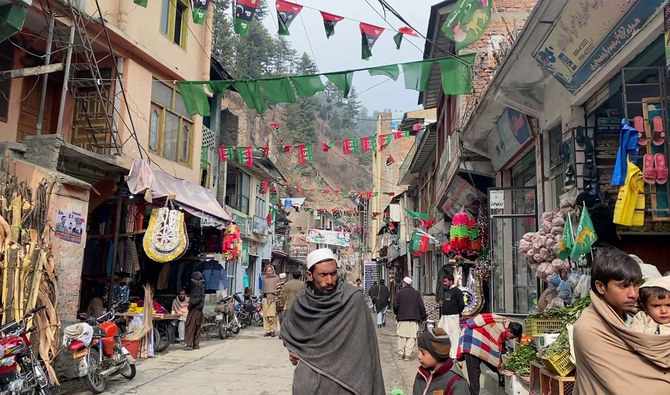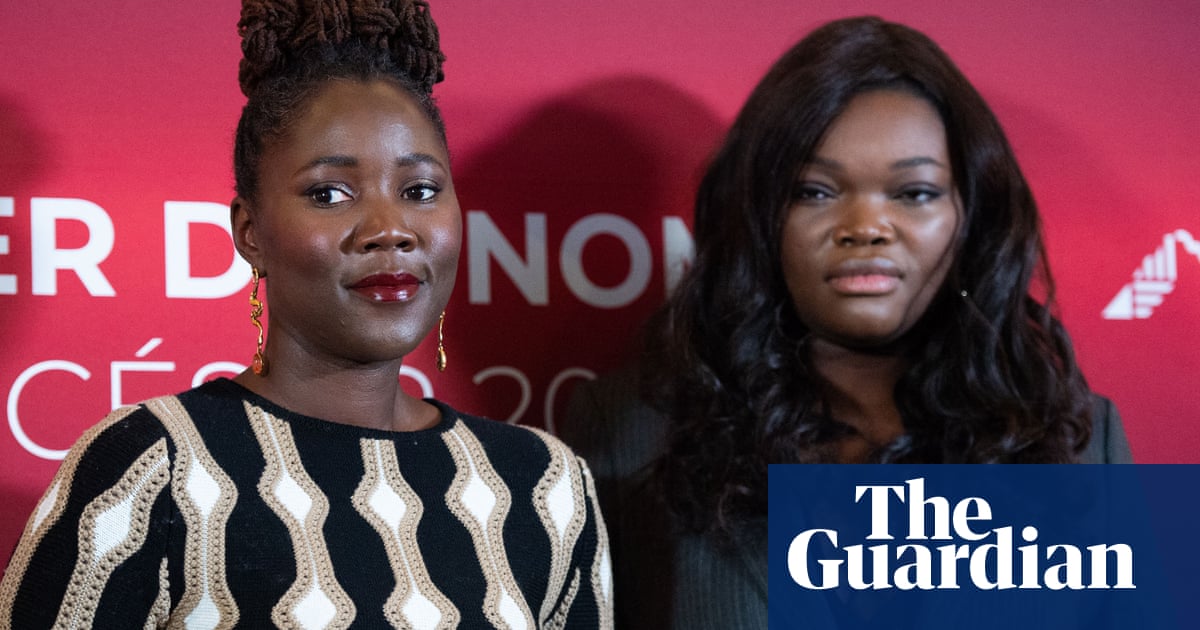
Four women and three foreign-language directors have been nominated for this year’s Bafta awards in a list whose reach and inclusivity come as a marked contrast to last year’s nominations.
Chloé Zhao, who won best director at the Golden Globes a fortnight ago, and Lee Isaac Chung – whose Minari took best foreign language film at the same event – will face Shannon Murphy for Babyteeth, Jasmila Žbanić for Quo Vadis Aida?, Thomas Vinterberg for Another Round and Sarah Gavron for Rocks in the best director category.
While the nominations for the 2020 Baftas – topped by Joker, The Irishman and Once Upon a Time in Hollywood – included no acting nominees of colour, this year the majority of contenders across all acting categories are non-white.
Leading actress frontrunner Frances McDormand (for Nomadland) is joined by Bukky Bakray for Rocks, Radha Blank for The Forty-Year-Old Version, Vanessa Kirby for Pieces of a Woman, Wunmi Mosaku for His House and Alfre Woodard for Clemency.
The late Chadwick Boseman is in the mix for leading actor, as is Anthony Hopkins; they’re joined by Riz Ahmed for Sound of Metal, Adarsh Gourav for The White Tiger, Mads Mikkelsen for Another Round and Tahar Rahim for The Mauritanian.
As well as being up for director and actress, Nomadland – an elegiac drama about the life of disenfranchised older Americans living in motor homes – is nominated for best film, adapted screenplay, cinematography, editing and sound.
Meanwhile Rocks, the lively tale of five female friends in inner-city London, which swept the board at last month’s British independent film awards, is up for outstanding British film, outstanding debut by a British writer, director or producer, original screenplay, supporting actress and casting, as well as director and leading actress.
Following closely behind with six nominations are The Father, Mank, Minari and Promising Young Woman, while The Dig and The Mauritanian picked up five nods apiece.
The directing and all four acting categories have seen their shortlists expanded from five to six, in an effort to expand the range of films celebrated.
This was one of the 120-odd changes announced by Bafta last year to urgently address what CEO Amanda Berry called a “hugely disappointing” lack of diversity.
“It’s clear there is much more to be done and we plan to double down on our efforts to affect real change and to continue to support and encourage the industry on the urgency of doing so much more,” she said at the time.
As well as adding 500 new names with “a strong focus on recruiting from underrepresented groups” to 6,500 pre-existing members, substantial adjustments were made to the way in which its shortlists are drawn up.
This meant that in the majority of categories, the finalists were whittled down from a longlist decided by 100 relevant chapter members by juries of around 10 to 12 “industry experts”. These were “put together by Bafta, comprising of a diverse range of backgrounds, experience and age”.
Some had expressed alarm that Bafta membership was not a prerequisite of serving on such a jury, with diversity the guiding principle. But speaking to the Guardian, Bafta chair Krishnendu Majumdar confirmed that all juries did comprise at least 95% Bafta members (50% had been the ideal minimum stipulated on earlier guidance).
Such juries have long been used to decide shortlists – and winners – for the outstanding British film prize, which remains the case. The victors in most categories will continue to be decided by all Bafta voters.
More than 50 films are nominated for awards this year, up from the 39 mentioned in 2020, an increase Berry credits to the new rules helping ensure members actually watch the films in contention, which include each member being sent a randomised list of 15 movies they must view.
The pandemic had also played a part, she said, meaning members were further encouraged to seek out a greater depth and breadth of films, allowing fresh talent the chance to be recognised.
“The whole world changed last year and we wanted step up,” said Majumdar. “People don’t want quotas. They don’t want to be there because they’re from an underrepresented group. They just want the opportunity to have their work seen.”
The remarkable scope of cinema recognised in the list nonetheless meant there were some notable omissions. Neither Rosamund Pike nor Carey Mulligan were nominated for their roles in I Care a Lot or Promising Young Woman, respectively, as they were for at the Globes, where Pike proved victorious.
Borat Subsequent Moviefilm had to make do with one nomination, for supporting actress Maria Bakalova, with nothing for its writing team or leading man. Sacha Baron Cohen’s supporting acting role in The Trial of the Chicago 7 also went unrecognised; however, the film is nominated for best film, editing and original screenplay.
Emerald Fennell’s Promising Young Woman is also up for best original screenplay and best film, but Fennell is not among the directing nominees.
The other contenders for best film are The Father, Florian Zeller’s adaptation of his play about a man with dementia, Kevin Macdonald’s Guantánamo Bay drama The Mauritanian and Nomadland. Best film is the only category whose shortlist was decided by all voting members, which may explain some of the disparities between its picks and those on the remainder of the ballot.
Last week, the nominees for the rising star award, voted for by the public, were announced as Bukky Bakray, Conrad Khan, Kingsley Ben-Adir, Morfydd Clark and Ṣọpẹ Dìrísù.
The awards will now be given out in two different ceremonies on 10 and 11 April, the former for craft awards and the second focusing on the more mainstream categories. Both are billed as being broadcast virtually from the Royal Albert Hall; further details on the exact nature of the ceremony are unknown but it is believed Graham Norton will return as host.












